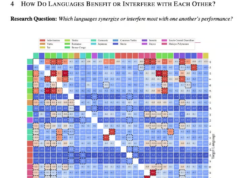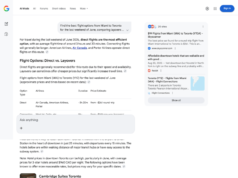![]()
Google is facing a consumer antitrust lawsuit over its requirement that if Android device manufacturers use one of its apps it must use a bundle of others, allegedly driving up the cost to consumers.
The suit, filed by Hagens Berman, a Seattle-based law firm that has represented plaintiffs in other big antitrust cases, alleges the company’s mobile application distribution agreements (MADAs) with manufacturers contribute to a monopoly by Google in the search business.
Android, which is found on more than 78 percent of smartphones worldwide, can be used on devices without Google services. It is not often, however, that a company chooses to not include Google Play, YouTube or other Google apps on a device. The MADAs, the existence of which were unknown until Harvard Business School professor Ben Edelman wrote about them, must be signed before a mobile device manufacturer can include Google applications that are vital to success.
Unfair Requirements
The lawsuit, filed Thursday in U.S. District Court in San Jose, California, alleges that the MADAs have been used to boost Google’s market share, particularly in the search industry. Popular Android device manufacturers like HTC and Samsung have entered into the previously secret agreements, which require that additional Google services be included on mobile devices.
Among the extra services that must be installed alongside Google Play and YouTube are applications like Google Search. Not only must they be built into the devices, they must also be made the default apps for certain functions.
By forcing Google Search to be installed on millions of Android handsets, the lawsuit alleges, Google has been able to dominate the search industry and generate billions of dollars in profit through search-related advertisements.
“Google has found a way to use its Android mobile operating system (‘Android OS’) to maintain and expand its monopoly,” says the class-action complaint.
Bringing Devices to Life
The lawsuit was filed by the owner of an HTC phone made in 2011 that runs on Android. The suit alleges Google’s restrictions made the phone more expensive.
Google denied its practices were anti-competitive in an e-mail to Bloomberg News.
“Anyone can use Android without Google and anyone can use Google without Android,” said Matt Kallman, a Google spokesman. “Since Android’s introduction, greater competition in smartphones has given consumers more choices at lower prices.”
As the lawsuit notes, Android as an operating system can be used without many fees or requirements. Yet many of the things associated with an Android phone or tablet are actually the result of additional services like Google Play, the Android’s primary app store.
The MADAs are allegedly used by Google as a way to get the company’s entire suite of applications onto the majority of Android phones and tablets. If a mobile device manufacturer were to only want one or two vital applications, Google would not allow it.
It is not clear whether mobile device manufacturers are unhappy about the MADAs. If, for example, HTC was not required to make Google Search the default search engine, it seems unlikely that another search engine would be chosen.
Additionally, Google has dominated the search industry since before Android was a major mobile OS. When the first Android phones were introduced in 2008, Google already had a 60 percent market share in the U.S. Six years later, Google’s search market share has only grown by a few percentage points, suggesting that the MADAs are not responsible for the search engine’s success.
FreeAndroid:
Posted: 2014-05-02 @ 8:48pm PT
If HTC was not required to make Google Search the default search engine, it would solicit bids from other search engines. Similar to PC manufacturers in the nineties, that would get kickbacks when users used pre-installed ISPs, the money that competing search engines would pay would help reduce the cost of the device.
Moreover, there is another questionable issue with Google’s bundling. Incidentally, GooglePlay dwarf all other apps stores, and plenty of apps are difficult to find outside of GooglePlay. This makes it even more problematic for device manufacturers to resist signing those MADAs. It is time to call Google’s anti-competitive game for what it is. Bring on the lawyers!
NewsFactor Network







